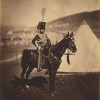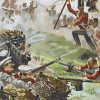St. Petersburg
St. Petersburg is a port city on the Baltic Sea in the northwest of Russia, and the country’s second largest city. Named after Peter the Great, it was the capital of Imperial Russia until 1918, and in the twentieth century has been successively renamed as Petrograd in 1914, Leningrad in 1924, and St. Petersburg again in 1991. It is home to the Hermitage, a museum founded to house Catherine the Great’s collection of paintings in 1764, and the Winter Palace, the residence of the Russian Tsars until the Russian Revolution of 1917. The city’s historic center is now a UNESCO World Heritage Site.
Parent Map
Coordinates
Latitude: 59.938758638800
Longitude: 30.314970016479
Longitude: 30.314970016479


